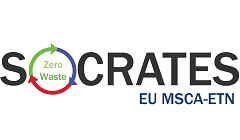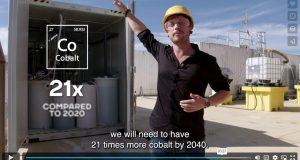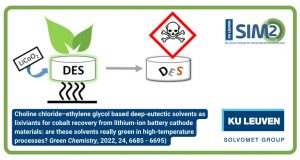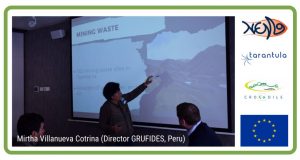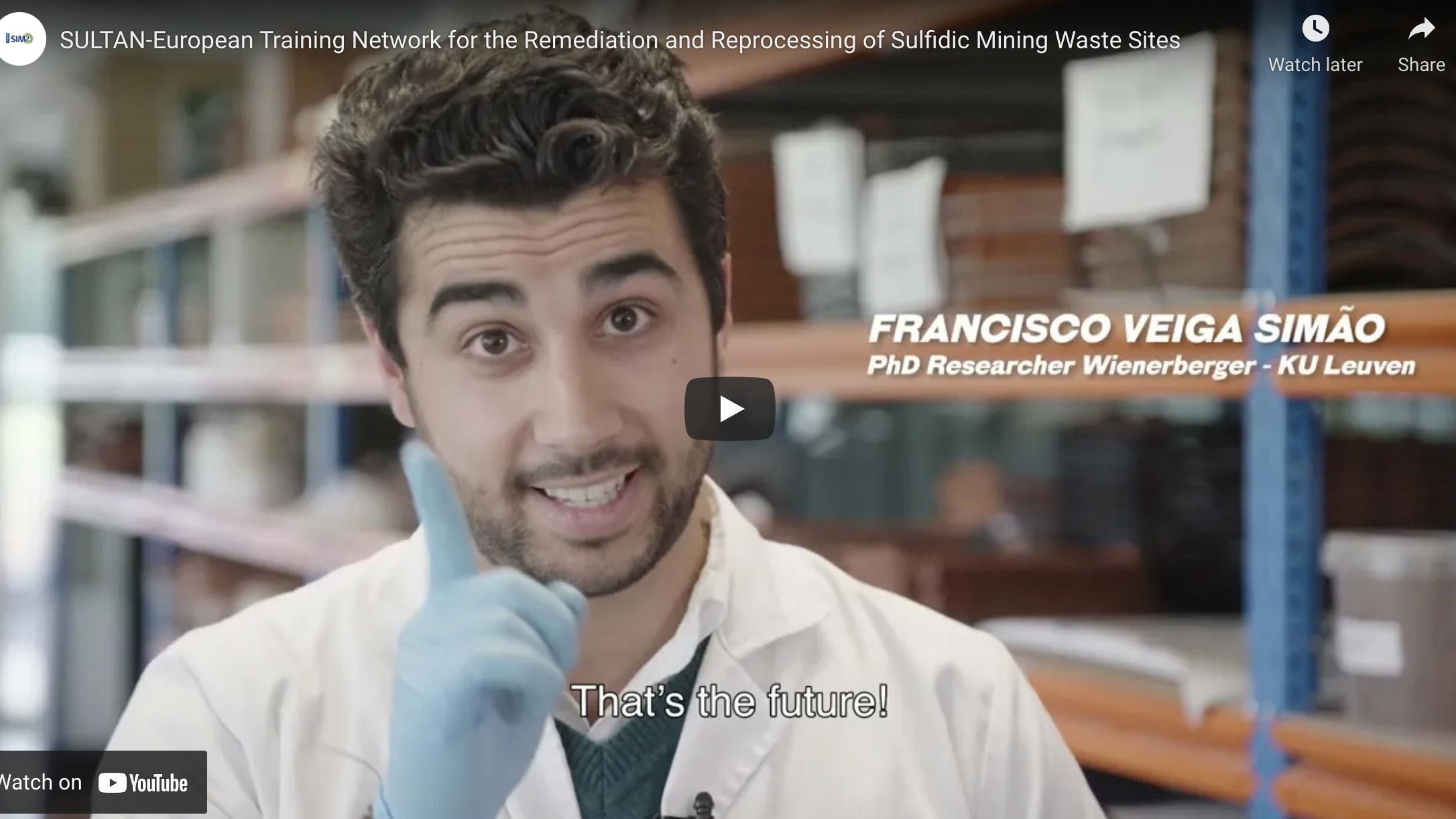Stylianos Spathariotis works as a PhD student at the University of Leicester, UK. In the framework of the ETN SOCRATES project he is currently performing a secondment at the Lab for Inorganic Chemistry (SIM² KU Leuven). He investigates the applicability of Deep Eutectic Solvents for the recovery of valuable and critical metals that are present in industrial process residues. (Leuven, 5-4-2018)
Why did you choose to work in Belgium?
Actually my base university is in Leicester but as part of the ETN SOCRATES project. We are offered the opportunity to undertake several secondments at other partners of the project as part of our research activities. One of my secondments is in Belgium at the University of Leuven, at the Lab for Inorganic Chemistry (LIC). I was very happy to come and work here as it is a renowned institution with high level research. Also, being in the center of Europe it was a good opportunity to travel around !
What are you working on?
Currently I am using a new class of Ionic Liquids: the so called Deep Eutectic Solvents. By using them I am trying to recover critical and economically important metals present in the commercial industrial waste. To be more precise, after the dissolution of the industrial waste in the Deep Eutectic Solvents I am testing different methods to recover the metals in metallic form. If you would like to know more about DES, I would gladly like to refer you to the blog-section of the Socrates project website where my colleague at Leicester Marianna recently published a short article about them: https://etn-socrates.eu/communications/blog/
What attracts you in the research project you are working on?
The thing that attracts and motivates me the most about my project is that it I am trying to solve a major real life problem. I am an engineer by nature and also on paper so this is what I was made and being taught to do. Every small step that I make in my research gives me evidence that my project has value and the potential for real industrial use. And this gives me the satisfaction that everyone is looking in their job.
What helps you to overcome the difficulties of life?
In my bio it is mentioned that I am ambitious and optimistic and this is true. I am always confident that no matter of how difficult can life be sometimes, I will always make it sooner or later. I believe in myself and in my abilities and even if sometimes this is not enough, there is always some room for improvement!
What job would you be terrible at?
A job with no potential for big career. If my job would have no meaning in this world, I would probably loose motivation quite rapidly – and without motivation, I believe my work would probably not be of the highest standards…
How do you recharge?
Since I started working in the university of Leicester there is not much I do in parallel even for myself. Nevertheless, I have a serious working out routine and this is what helps my mind relax and my body recharge. Actually, the real rechange occurs after working out when I fall in a deep sleep! Apart from that, I can really enjoy having a couple of drinks with friends, or even by myself, if I really feel like doing it.
Bio Stylianos Spathariotis
 Stylianos Spathariotis is a motivated and ambitious young researcher coming from Greece. He just turned 25 and he is continuously seeking to expand his knowledge to improve himself in every aspect but at the same time to enjoy life. For the moment he is focusing on his innovative research topic of the development of an environmental friendly and cost efficient process recover critical and economically important metals from the industrial waste. “It’s time to make this step towards a zero waste society” he said. As a member of the Socrates project he is currently working in the University of Leicester in the UK. You can always contact him on: st.spatha@gmail.com
Stylianos Spathariotis is a motivated and ambitious young researcher coming from Greece. He just turned 25 and he is continuously seeking to expand his knowledge to improve himself in every aspect but at the same time to enjoy life. For the moment he is focusing on his innovative research topic of the development of an environmental friendly and cost efficient process recover critical and economically important metals from the industrial waste. “It’s time to make this step towards a zero waste society” he said. As a member of the Socrates project he is currently working in the University of Leicester in the UK. You can always contact him on: st.spatha@gmail.com
